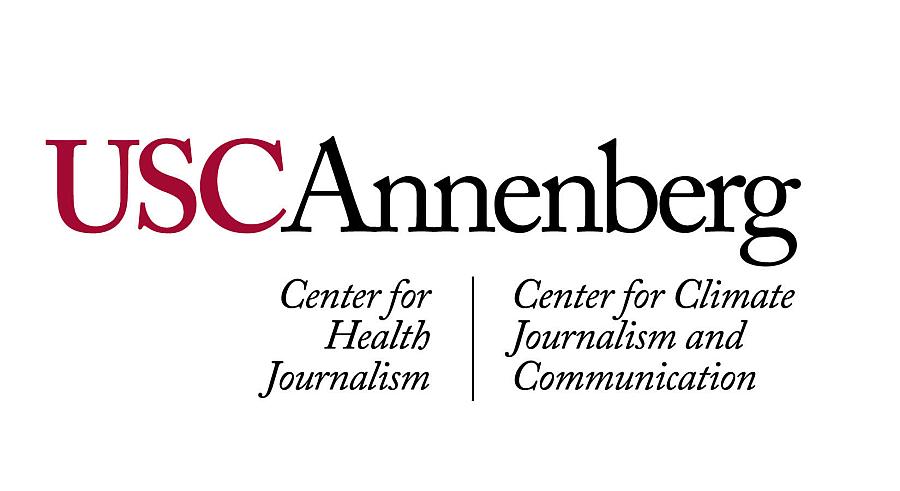
Upcoming fellowship dates
November 13-14, 2025
Description
From the Los Angeles wildfires to Hurricane Helene, we live in an era of mega-disasters and other climate change effects that have enormous implications for health and well-being. The Health and Climate Change Reporting Fellowship supports ambitious investigative or explanatory projects about health in the context of wildfires, hurricanes, flooding, extreme heat and other disastrous impacts of climate change. Offered by USC Annenberg’s Center for Health Journalism and Center for Climate Journalism and Communication, we encourage reporting that focuses on physical health, mental health or both, with an eye on the systemic inequities that worsen the impact of disasters and delay recovery.
Fellows receive:
- Two days of intensive training in Los Angeles
- Reporting grants of $2,000-$10,000
- Five months of one-on-one mentorship from a veteran journalist
- Monthly virtual cohort meetings
- Program participation stipends, for travel and hotel costs, of $150 to $1,000, depending on a Fellow's proximity to USC
Reporting themes we support
This program is designed to look at the intersection of climate change and human health, and provides an opportunity to work intensively with the Center on a major journalism project. Projects should focus on how climate change and health plays out in the United States in a dangerously warming world.
While there are many other worthy stories to be done on a warming planet, from the effects on oceans to the survival of species, those journalism proposals would not fit under the umbrella of this program. Disasters always prompt a flurry of stories; we’re looking for proposals that dig deeper. Projects could include, but are not limited to, one or more of the following themes:
- Health effects from exposure to disasters such as wildfires, hurricanes and floods or their aftermath, which can range from severe air pollution to hazardous mold to contaminated soil at burn sites.
- Trauma and other aspects of mental health related to loss and displacement.
- The lingering health impacts of not-so-recent disasters.
- The impact of climate change in combination with other structural and health inequities – whether it be for workers cleaning up after disasters or vulnerable families and communities trying to reclaim their lives.
- How communities are working to counteract the damaging health effects of extreme weather.
- Accountability reporting about government efforts and infrastructure focused on health and well-being before, during or after extreme weather, ranging from an effective network of cooling centers for heat waves to a lack of planning to help residents with disabilities escape fire.
- The ripple effects of federal policy changes for disaster relief, including cuts and funding freezes, on communities’ ability to protect health before, during and after a disaster.
- Challenges accessing health care post-disaster in areas that were already short of physicians, mental health counselors and other medical professionals.
- The preparedness response by or impact to health care systems.
We also would welcome other well-thought-out proposals for projects about extreme weather and health.
Interested in applying? The application deadline for 2025 has passed. If you would like to apply for our next program, please fill out the contact form below and somebody from our Center will reach out to you.
Sign-up for our newsletter as well for updates and deadlines for future opportunities to apply.
Don’t see your question answered there? Reach out to us at chj@usc.edu.
